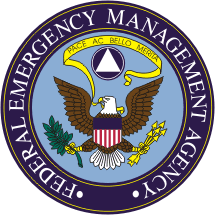 Everyone's favorite hobby these days is FEMA-bashing, and last week's report that as much as a quarter of the money that FEMA paid out in the aftermath of Hurricane Katrina went toward fradulent claims gave FEMA-bashers yet another excuse to criticize the agency. But in all fairness, FEMA was stuck between a rock and hard place. By making relief money quickly and readily available, particularly through $2,000 debit cards, FEMA exposed itself to fraud and misallocations. (It should come as no surprise that con artists see a major national disaster as an opportunity for profiteering. Just look at the aftermath of 9/11.)
Everyone's favorite hobby these days is FEMA-bashing, and last week's report that as much as a quarter of the money that FEMA paid out in the aftermath of Hurricane Katrina went toward fradulent claims gave FEMA-bashers yet another excuse to criticize the agency. But in all fairness, FEMA was stuck between a rock and hard place. By making relief money quickly and readily available, particularly through $2,000 debit cards, FEMA exposed itself to fraud and misallocations. (It should come as no surprise that con artists see a major national disaster as an opportunity for profiteering. Just look at the aftermath of 9/11.)But the alternative would be to subject these hurricane victims to the despised process of navigating bureaucratic red tape. If the government were to fully research and substantiate these claims, the hurricane victims, who had already been displaced from their homes and had their daily routines shattered, would be stuck in limbo for weeks and months. Furthermore, many of these people had lost everything in the disaster, including the paperwork they would need to satisfy the government that their claims were legitimate. Such a process would have placed these people in a horrible Catch-22. The Democrats would have had a field day with all the political backlash (though, as usual, I doubt they'd have any good alternative ideas to offer).
Jeff Jacoby has an interesting article in the Boston Globe today about allowing private sector non-profit organizations to control the contribution and distribution of relief funds. I have no doubt that a private sector operation would be more efficient than what the government could do, but I question whether it would be enough in all cases. I do believe that disaster relief is a necessary function of government, and I would love to see private contributions offset the total bill, but what happens when the private sector comes up short? Sure, Hurricane Katrina captured the nation's attention and galvanized an outpouring of financial support. But what about the hundreds of minor disasters that FEMA deals with on an annual basis? I didn't see all sorts of donations coming in to help those displaced by the floods we've had in New England over the last two months. The only way to help those victims is for the taxpayers to pitch in.
As much as I believe in small government and the free market economy, in cases of market failure, the government must step in and fill the gaps. So, lay off FEMA just a little bit, okay? They're doing a heck of a job.
No comments:
Post a Comment